Hi, my name is Dr. Liz Lipski. Over my four-decade career in digestive health, one of the most important discoveries I’ve made is this:
If digestion isn’t working, then nothing is working — and that includes bone health.
It’s quite common for people to have both osteoporosis and digestive health issues. Sometimes osteoporosis is diagnosed first, while other times we see the symptoms of GI diseases first, like maldigestion and inflammation, which make it harder for the body to absorb nutrients and build bone.
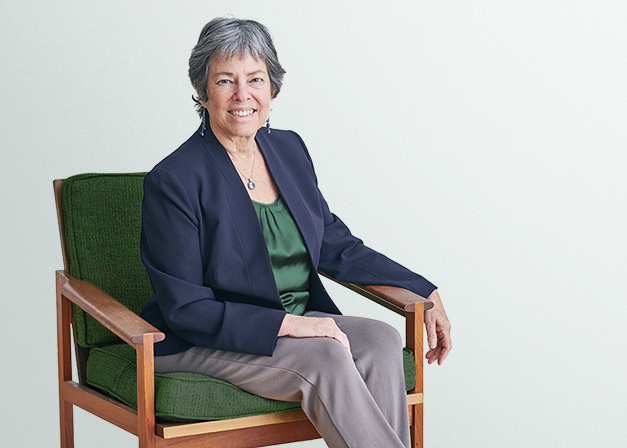
Why Does Gut Health Matter?
The gut microbiome is the collection of microbes that live in us and on us. They live everywhere in our bodies and everywhere on the planet. In our digestive system, we have somewhere between three and seven pounds of these microbes, which are comprised of bacteria, fungi, and beneficial viruses that we call “phages.”
In people with healthy guts, there’s a proper balance of the different types of these microbes; they live in harmony and work well together. But when there’s an imbalance, we call that “dysbiosis.”
I’ve looked at a lot of the research, and almost every health condition you can think of is accompanied by an imbalanced gut microbiome. And that includes osteoporosis.
How Do We Heal the Gut?
One important step is to eliminate pathogens and “problem foods.” More than 70% of people who’ve been diagnosed with IBS actually have small intestinal bacterial overgrowth (SIBO), fungal overgrowth, or large intestinal methanogen overgrowth. Treatment can include herbs, antibiotics, and specialized diets (like the low FODMAP diet, for example).
Intermittent fasting and calorie restriction provides another way to help rebalance the gut microbiome. Fasting 12–16 hours a day can give the digestive system the rest it needs to start rebalancing.
Also, probiotics can be very helpful. And so can prebiotics, which are found in healthy foods. Prebiotics are the food for the microbiome. In fact, the main way to change the microbiome (i.e. heal the gut) is by eating the right foods.
Using Food as Medicine
We can change our microbiomes within 24 hours by changing what we eat. But for lasting results, it’s important to eat a healthy diet long-term. That’s the only way to see lasting beneficial changes to the gut microbiome.
Unfortunately, about 75% of the foods in Western diets don’t help build a strong microbiome. Most of the foods that people in the United States eat are ultra-processed, inflammatory, and stripped of nutrients. And they may contain things like colorings, preservatives, and other kinds of food additives, some of which are really detrimental to the gut microbiome.
So, if eating the right foods is so important for our gut health, which foods should we eat?
Fruits and Vegetables
I can’t overstate the importance of vegetables in reducing cancer and cardiovascular disease, balancing the microbiome, and so much more. Eating lots of vegetables and fruits with phytonutrients and prebiotics is key to good health.
We know that artificial sweeteners may not be good for some people based on their genomics. Saturated fats, sugars, and red meats can also have a detrimental effect on the microbiome. For others, gluten can dramatically increase gut inflammation, which leads to dysbiosis… which leads to leaky gut… which leads to systemic inflammation.
When we are inflamed, we don’t absorb nutrients very well. Inflammation prevents the healthy nutrients you eat from getting into your body and bones. That’s why it’s clear to me that diet and gut microbiome both play a role in osteoporosis.
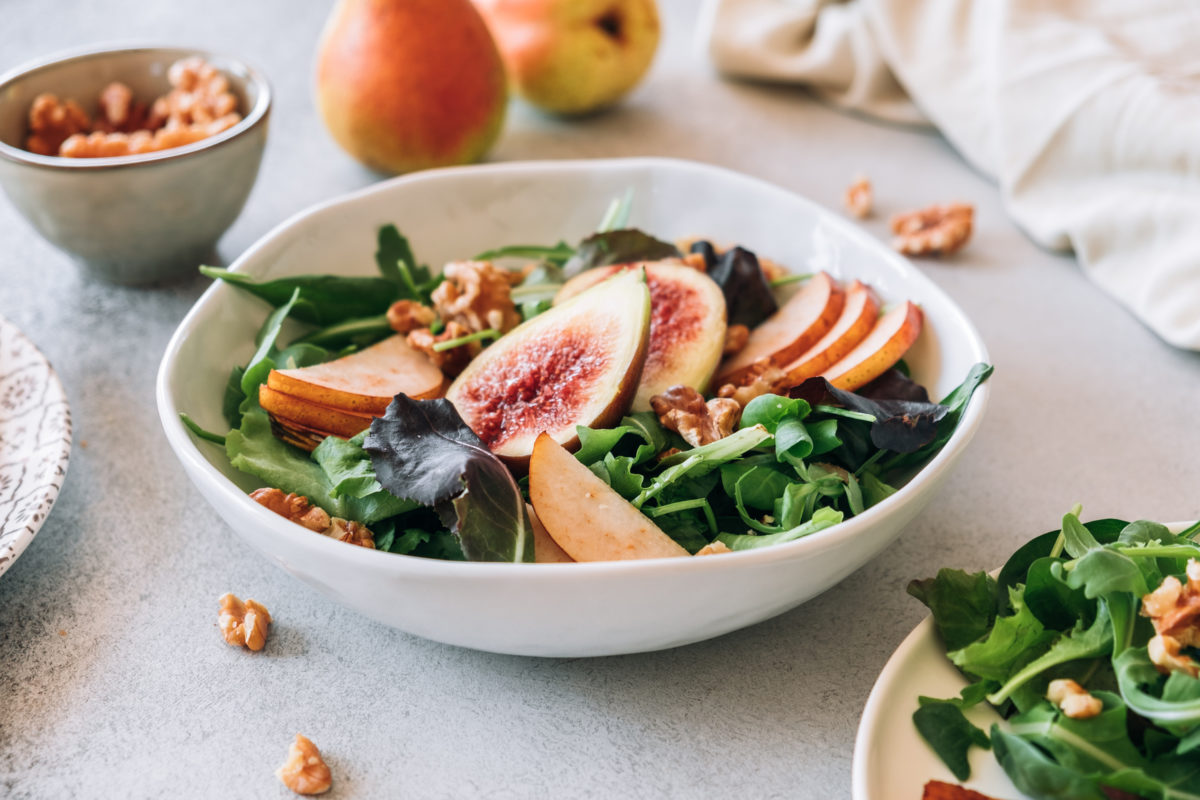
Prebiotics
Prebiotics provide food for the microbiota; they include all soluble fibers — the bright colors of fruits, vegetables, nuts, beans, whole grains, seeds, and sea-vegetables. So that sushi wrapped in nori seaweed is helpful to your gut. Resistant starches, like cooked and cooled potatoes, are also prebiotic. Oligosaccharides are also prebiotics that are often added to foods and supplements.
When we first eat foods high in prebiotics, an estimated 95% of the prebiotics aren’t available to our bodies. But as they get gobbled up by the microbiome, the nutrients become absorbed by our bodies. That’s why a healthy microbiome is so important; when it’s not healthy, your body can’t absorb all the excellent nutrients in the foods you eat.
Herbs and Spices
Culinary herbs and spices add flavor and interest to foods. I recommend using them every day in your diet. They’re not only great for digestion, but also for building the microbiome. Plus, they contain loads of good prebiotics. So try to cook with one to three teaspoons a day of dried or fresh herbs, or one to three tablespoons of spices such as turmeric or cinnamon.
I have my own herb garden and I love going out to collect thyme and rosemary, dill, mint, and basil. There are so many great culinary herbs, and they’re easy to grow. You can even grow them in a pot on a balcony.
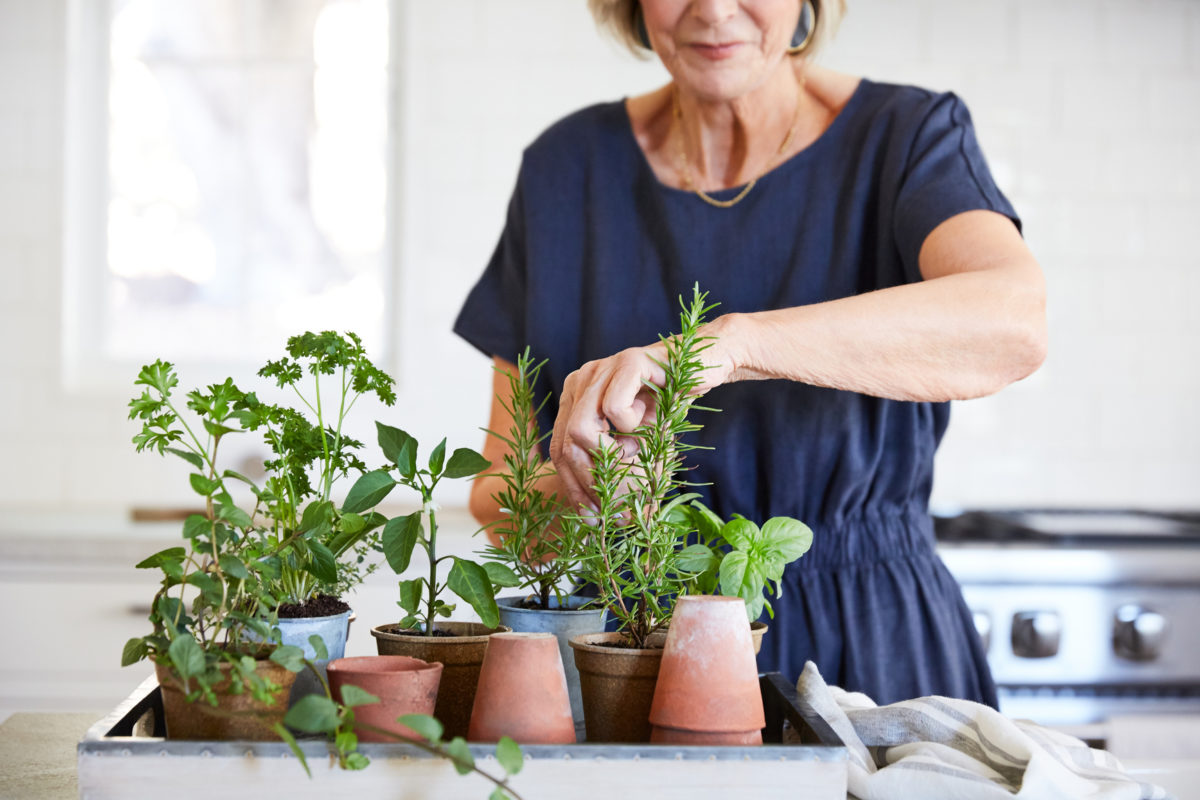
Cultured and Fermented Foods
Cultured and fermented foods can be key. Some people might not feel great eating these, but if you do, they’re some of the best foods for reestablishing your gut microbiome.
I love kimchi and eat it most days. I also really love kefir, which is a yogurt-like drink. Find cultured or fermented food that you love to eat such as yogurt (just beware of excessive added sugar in flavored varieties), miso soup, olives, sourdough bread, black or green tea.
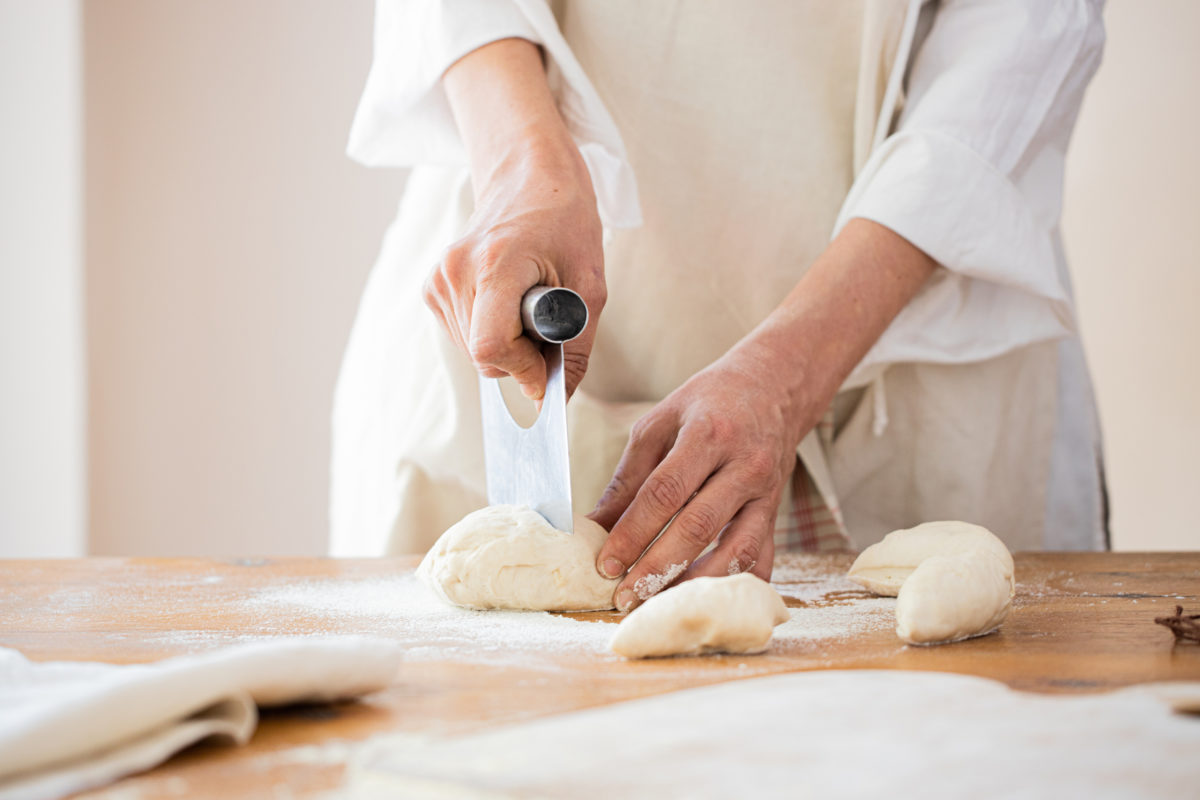
In Summary
The food you eat has an enormous impact, not just on your overall health, but specifically your bone health. By eating lots of natural, healthy foods (and staying away from the processed ones), you’ll give your body the nutrients it needs to help you — and your bones — remain healthy and strong.
To discover more about how to rebalance the gut microbiome, including a detailed list of gut-healthy foods to focus on, watch this in-depth gut-health video I posted inside The AlgaeCal Community. (The AlgaeCal Community is an online community for AlgaeCal customers.)
And to help your bones heal, consider taking AlgaeCal Plus. AlgaeCal Plus is a natural bone-building supplement that contains all 16 minerals and vitamins your bones need to grow strong.
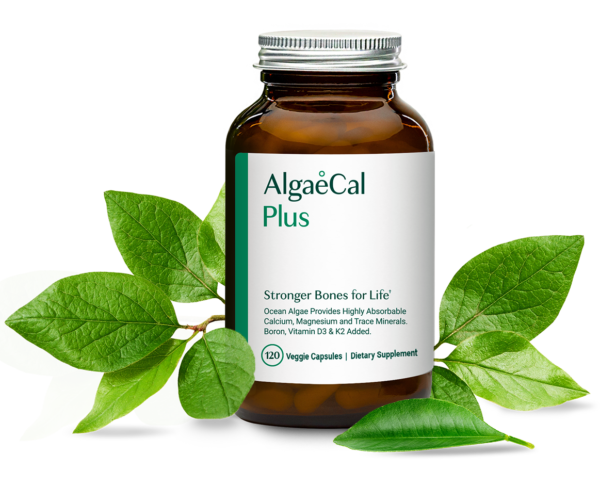




Patricia Miker
January 30, 2023 , 10:34 amJust watched Dr Lipski’s video on Gut Health. She suggested changing from PPI to H2 Blocker. I am on H2 blocker and it reduces stomach acids but is it considered sufficient? Should I also get off H2 Blocker and try to balance gut microbiome thru pre and probiotic foods?